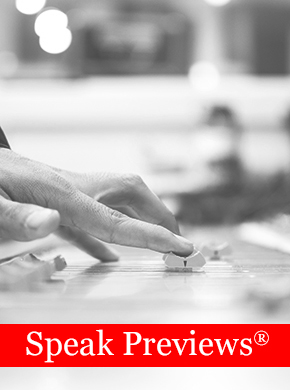Every act of communication can help you demonstrate your value to your superiors and colleagues. Whether you are in a hierarchical or matrix organization, questioning well is one of the communication acts that marks you as thoughtful, collaborative, and prepared. Earning such regard enriches your reputation—and thereby increases your influence.
Michael offers the following tips to help you make the most of such opportunities.
Who will be attending the meeting? What are their concerns? What do you know about participants' style or personality that can help you craft good questions? Most important, he observes, is to know what others need from the meeting: "How can you contribute to seeing that that happens? How can you contribute towards satisfying those needs?" Considering the characteristics of the audience helps you structure appropriate questions and ask them in a manner that shows your awareness.
No question should be random or asked just so you can be seen or heard. Questions should be part of a professional agenda, not a personal one. "They must carry the business of the meeting forward," Michael says. "So it's not helpful to preface questions or comments with a treatise designed to show off what you know. Instead, develop questions that are designed to facilitate the purpose of the meeting." No tangents, no personal asides - just pertinent questions that focus on issues, solutions, or information important to decision-making or subsequent action.
To help you maintain a professional tone and image, he also recommends that questioners avoid "I" statements such as "I think" or "I believe." Such phrases introduce doubt into your view and personalize it, focusing on you rather than on discussion topics. "Substitute 'what if,'" Michael suggests. "Instead of saying 'I think the data should be presented chronologically,' ask 'What if we present the data chronologically?' and then provide reasons why that option is worth considering."
The phrase "I may be wrong, but …" has a similar effect. "It centers listeners on the possibility that your contribution has no merit," Michael says. "It's often used when a questioner is asking about an alternative solution or perspective. Word it directly—for example, ask if chronological ordering would solve the problem."
"People love to hear their words come back to them," Michael points out. "So integrate into your questions words and phrases used by others." Doing so shows that you're listening, absorbing the nuances of the discussion.
Eye focus, too, is an effective way not only to show attention but to command it as you question or comment. Hold eye focus for a few seconds with another person; then focus on someone in another part of the room, then in another.
Preparation is essential. If material has been previously distributed, read it but also tab or annotate it in some way. Familiarity with the material establishes you as someone who regards the needs of colleagues and projects seriously, someone who is well-organized and values his or her function in the company. And, during the meeting, you'll have quicker access to the sections about which you have questions.
"Communicate your value by communicating well," Michael stresses. "Your reputation will benefit, as will your company."



